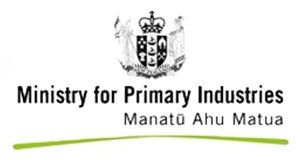Development of Competitive Livestock Production Systems with Low Greenhouse Gases Emissions in Central America
 Costa Rica
Costa Rica
 Honduras
Honduras
 Nicaragua
Nicaragua
 Panama
Panama
Executive Summary
Farms with lower intensification only have grazing systems and generate more CH4 emissions than higher intensified farms. In contrast, farms with greater intensification systems have feeding strategies such as supplementing lactating cows with commercial concentrates, minerals, and silages. Furthermore, they tend to implement more management strategies such as pasture management plans, soil analysis, technical fertilization recommendations, rest periods, proper animal load and type of grasses and legumes usage. All these strategies result in greater milk production per cow and lower CH4 emission per liter of milk produced. Enteric fermentation is the main source of livestock emission. Farms less intensified only have grazed animals and generate 103% more methane emissions than more intensified farms that supplement with forage banks and concentrates. Furthermore, more intensified farms produce an average of 2.1 more liters of milk per cow.
The technological solution
Farms with lower intensification only have grazing systems and generate more CH4 emissions than higher intensified farms. In contrast, farms with greater intensification systems have feeding strategies such as supplementing lactating cows with commercial concentrates, minerals, and silages.
Furthermore, they tend to implement more management strategies such as pasture management plans, soil analysis, technical fertilization recommendations, rest periods, proper animal load and type of grasses and legumes usage. All these strategies result in greater milk production per cow and lower CH4 emission per liter of milk produced.
Results
Enteric fermentation (methane) is the main source of greenhouse gases (GHG) emissions. The most productive farms had lower emissions due to their mitigation strategies, such as supplementing with high-quality forages and using improved pastures. Methane emissions (CH4) constitute between 80 and 93% of GHG emission. The remaining 20 to 7% comes from manure, electricity, fertilization and fuels. Farms with lower intensification only have grazing systems and generate more CH4 emissions than higher intensified farms. Medium and higher intensification farms implemented feeding (i.e., supplementing lactating cows with commercial concentrates) and management (i.e., rest periods and proper animal load) strategies. These result in greater milk production per cow and lower CH4 emission per liter of milk produced. More intensified farms produce an average of 2.1 more liters of milk per cow. Furthermore, farms less intensified only have grazed animals and generate 103% more methane emissions than more intensified farms.
Beneficiaries
- 400 farms for carbon dioxide (CO2)-base line quantification
- 74 professionals trained
- 7 undergraduate and graduate level thesis
Sustainable Development Goals






Project news
Participating Organizations
Executor
- Centro Agronómico Tropical de Investigación y Enseñanza (CATIE) - Costa Rica
Co-executor
- Dirección de Ciencia y Tecnología Agropecuaria (DICTA) - Honduras
- Instituto de Innovación Agropecuaria de Panamá (IDIAP) - Panamá
- Instituto Nacional de Innovación y Transferencia en Tecnología Agropecuaria (INTA) - Costa Rica
- Instituto Nicaragüense de Tecnología Agropecuaria (INTA) - Nicaragua






